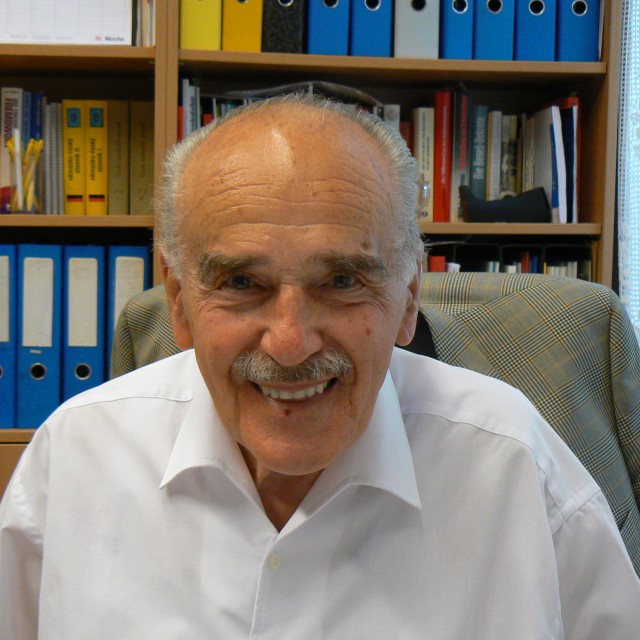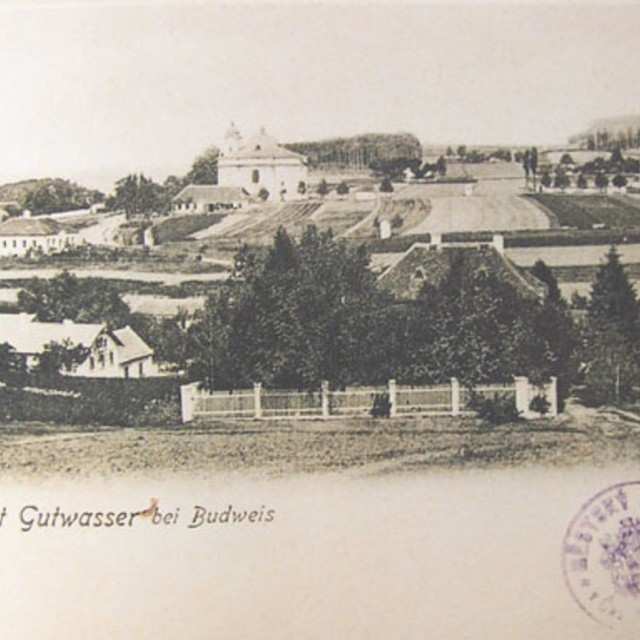The first victim they found
Alfred Bäcker found out about the end of World War II from a hospital in Vienna, where he stayed with pneumonia as a German Wehrmacht soldier. „I found out the war was lost for Germany and naturally wanted to go back to see my parents in Dobrá Voda. Yet I didn’t have a clue there was a revolution; I simply didn’t count on that. Civilians caught me, near Dobrá Voda, armed with guns and red bracelets; they were partisans asking me if I was German since I had German army car. They told me: ,You are German so leave the car here.‘ They took me to the head of the people´s committee in Dubičné, a village near České Budějovice. Partisans kept saying: ,Just shoot him!‘ The guy looked at me and asked: ,How many brothers and sisters have you got?‘ –, I have a brother.‘ –, What is his name?‘ – ,Vilém.‘ He shouted out: ,Lock him up!‘ Just so they would not shoot me because I was the first victim of those young people they run into.“ Alfréd Bäcker was increadibly lucky. The man he met had actually a pub in Dubičné and knew his parents personally. „He wanted to figure out if it was me from the questions because everyone thought I must have been dead already. He was glad I was alive. He took me to his home and sent his daughter to tell my parents I was going to be all right. Then he let me go free in a car and I got back to Budějovice. Within three hours we packed all our valuables with my parents and we managed to escape to Austria on 8th of May. I was driving an army car so we joined the German army and overcame all the barriers through Kaplic, which was already in Austria.“
Hodnocení
Abyste mohli hodnotit musíte se přihlásit!
Trasy
Příběh není součastí žádné trasy.
Komentáře

Lieutenant Alfred Bäcker
Alfred Bäcker was born in September 1921 in Budweis in a mixed marriage. His mother's family was of Czech extraction while his father's family was of German origin. His father worked in the Budweis gas works which had been built by Alfred's grand father. According to the father's family tradition, Alfred's brother was given the name Wilhelm and as the family was proud of its German extraction, the younger Alfred was supposed to have a German name as well. For political reasons, however, he eventually was given an international name. Since the age of seven he was able to attend a German school due to personal changes in Budweis. Afterwards he attended a grammar school. He graduated in 1939 and thereafter was sent to Nuremberg where he was trained as a telephone operator. Later he was drafted to the army and was sent to Finland where he spent a year and a half. In Finland he reunited with his brother and together they returned home. However, he had to return to the war and he was wounded. He was transferred to Munich for treatment and recovery. In Munich he was given military training and then he was sent to the front again, this time to the west, to the Ardennes as a platoon leader. He was wounded again and was treated in hospital. Due to a lack of artillery officers he was soon thereafter transferred to Hungary where he suffered pneumonia after having spent a night on guard in a watchtower. He was again taken to a hospital in Vienna. After recovery he decided to return home and on this journey he was surprised by the end of the war and by guerrilla groups. Although he was arrested he managed to get to Dobrá Voda where his parents lived and from there they escaped with the fleeing German army across the border. Alfred Bäcker spent the rest of his life in Austria. Died September 10, 2012.



